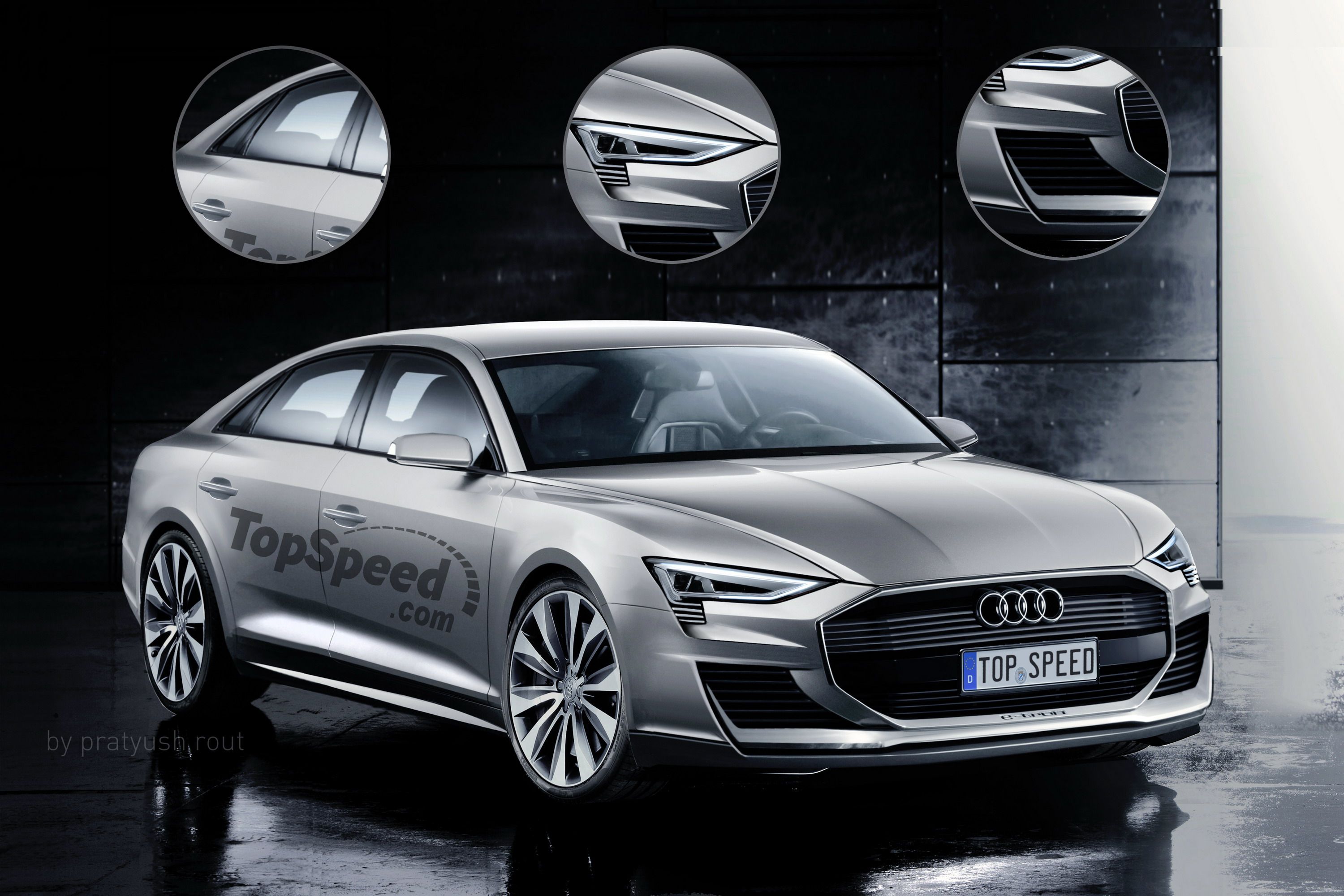New word has risen from within the bowels of Audi and, as it turns out, the company has a special operations group, known only as Artemis, that’s dedicated to “developing new business models for rapid prototypeing methods to speed development of existing models as well as data collection.” So, what in the world does that mean? Good question. Word has it that Artemis is busy developing the A9 E-Tron to take on the Mercedes EQS, but that’s only the tip of the iceberg, and there’s apparently a lot going on behind closed doors at Audi HQ.
The Audi A9 E-Tron – What We Know So Far
According to a report published by Autocar, the Audi A9 E-Tron is currently in the early stages of development, but is expected to be ready for launch by 2024. It will take the Mercedes EQS and Jaguar XJ head-on as Audi’s flagship model and will be based on the 2017 Aicon concept.
The A9 E-Tron is currently known internally as the E6. The plan is for it to take the form of a four-door coupe (or as Audi says, a “sporting saloon of liftback), and it should mirror the current A7 in terms of exterior dimensions. It’s believed that Audi will manage to make the interior more spacious than that of the A8, though. In the end, after it’s launched, it will serve as a technical showcase for as many as 75 electric cars and 60 PHEVs the companies under the VW Group have in the works. These companies include:
-*Audi
-*Bentley
-*Lamborghini
-*Porshce
-*Seat
-*Skoda
-*Volkswagen
Keep in mind that this is part of VAG’s €60 billion electrification strategy that is set to run through the decade. As far as Audi is concerned, the A9 E-Tron will serve as just one of up to 20 all-electric vehicles that will sit next to as many as 10 PHEVs.
What is Artemis to Audi?
Artemis isn’t some sub-brand or and stand-alone group.
According to Audi Chairman, Markus Duesmann, the aim of Artemis is to “emulate the inherent agility and speed of execution of rival electric start-up brands and leading motor racing teams.” Artemis has, apparently, been given a lot of freedom and is working on a global scale. Key contributors reportedly include Audi’s InCampus technical hub and VAG’s new software.org operation.
Artemis Isn’t Exactly New
This is the first time that you’re probably hearing about Artemis, but you’ve seen the group’s work in the past. The group worked hand-in-hand with the guys over at Porsche in developing the J1 platform that supports both the Porsche Taycan and Audi E-Tron GT.
What Comes After The Audi A9 E-Tron?
Artemis is here to stay, and it won’t just fizzle away into the void when the A9 E-Tron is launched. The group has been billed with advancing Audi’s other plans too. This includes existing projects and a new high-tech successor to the original Audi A2 – something we first saw in the 2019 AI:ME Concept car. We could also see production versions of the AI:Race electric sports car and the AI:Trail 4x4 if the people behind Artemis have their way.

